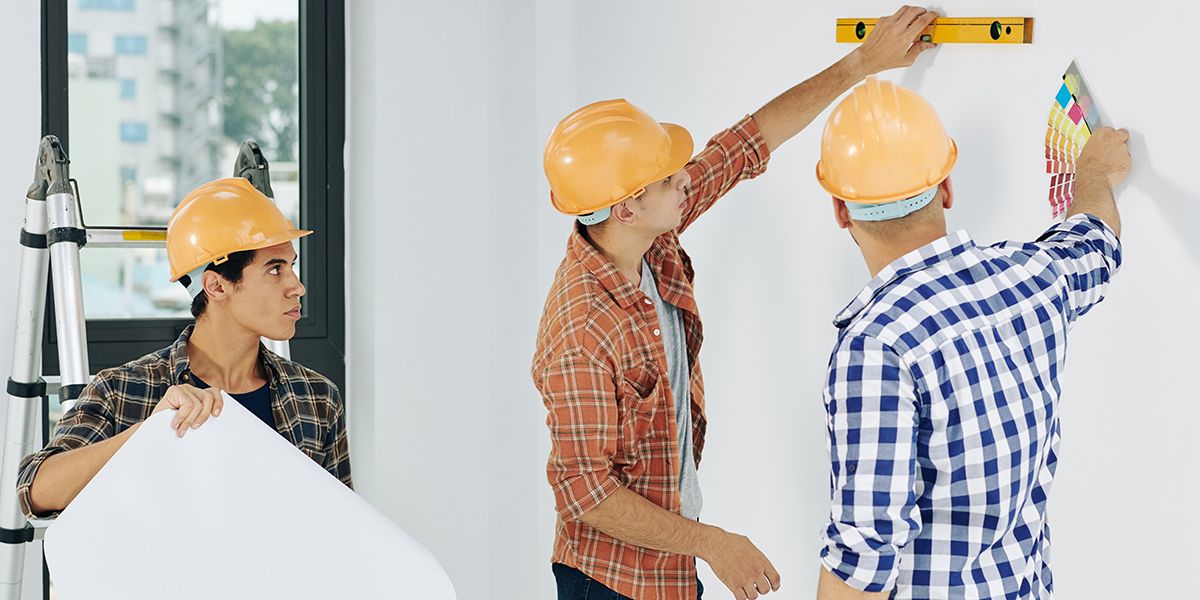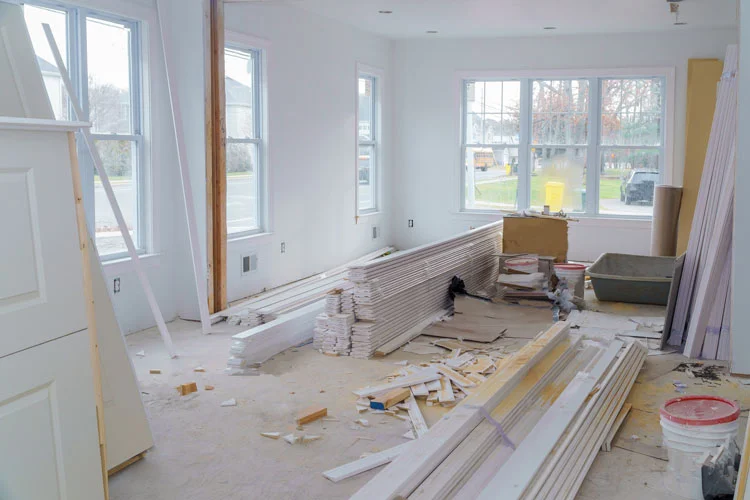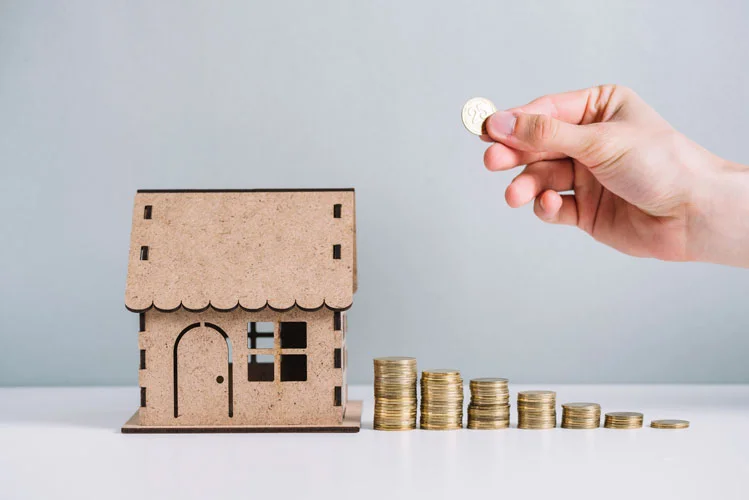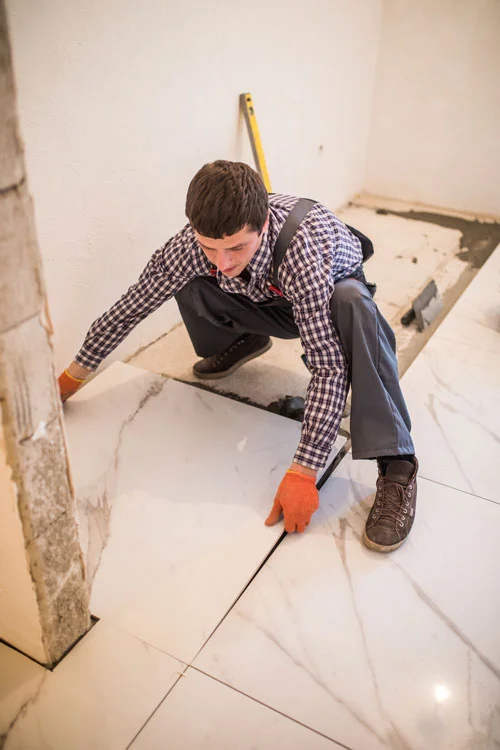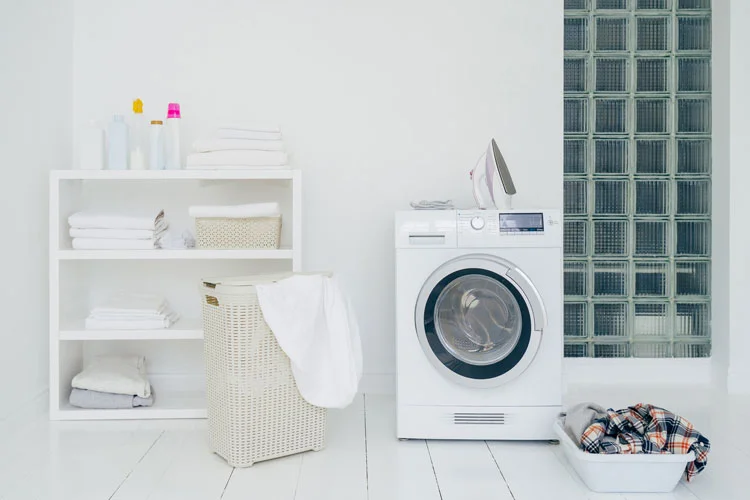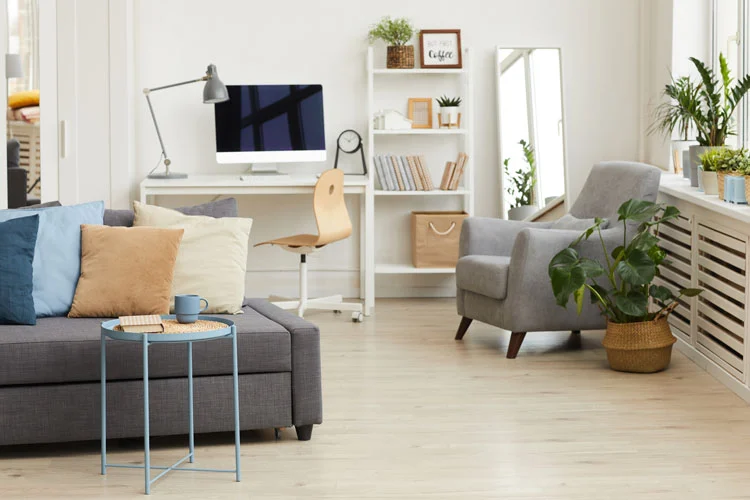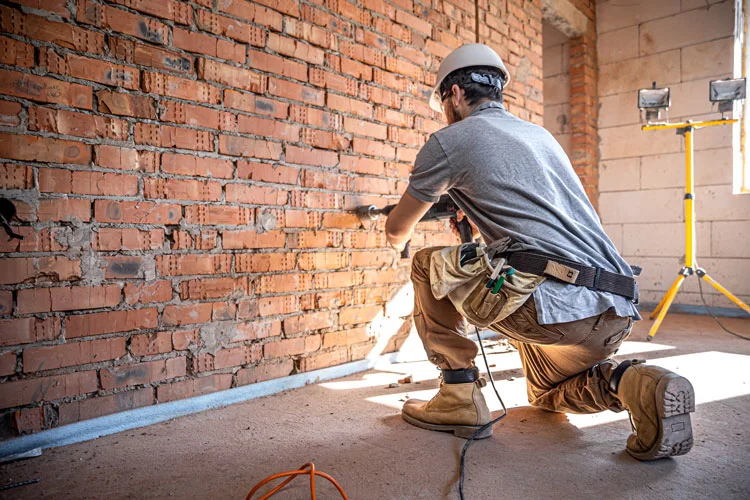Not many realize this, but building house additions is one of the best investments you can make in your home. Not only does it increase the market value of your home, but it also adds to the usable square footage. Be it a second story or a room addition; it will pay back its worth sooner or later.
However, home addition is an expensive home improvement and can cost you an arm and a leg. It is also complicated both in terms of architecture and red tapes. In addition, the enormous nature of the project meant that homeowners preferred professionals.
From building codes and local ordinances and inspections, there is a lot to consider. This article tackles all of the above, including the cost involved. We also added a few inspirations for your home addition.
Should I add on to my house?
A home addition is the most expensive home improvement you could undertake in your home. However, is it worth adding on to your home considering your finances? The answer to that question is not that simple. It depends on a few factors such as location, purpose, and resale value, to name a few.
If you plan to stay in your home for the near future, a home addition can help make it yours. You can enjoy the new additions for years to come. However, if you plan to sell the property, you’ll need to think about its value. Ensure that the add-on is cost-efficient. And that the cost of your home increases with addition.
Which is Cheaper: Build-out or Build-up?
It is easier to build out than build up when it comes to adding on to your existing home. The most simple reason, when building up, you have to remove your roof and rebuild it. It requires massive architectural and structural adjustments, which can be expensive. Above all, you will have to vacate the house and put all your personal belongings in storage.
Having said that, building a home addition is also disruptive. You will have to unearth and lay new foundations. As a result, you will also lose property space. But considering both, building out is cheaper and also versatile.
Which is Cheaper: Build a House or a Home Addition?
Generally, home addition is cheaper than building a new house, even if it equals the space. The closing costs(selling and buying) and registration alone would eat up any profit you may have.
If you are thinking along the same line, you are not alone. According to Zillow, 76% of Americans would instead build a new addition and not put down the downpayment for a new home. So most times, it makes sense to add on instead of building a new home.
Adding an Addition to Your House: What You Need to Know
Building a new addition can be challenging. Not only do you have to consider the space, but you also consider the impact on the sale value. Here are a few more things you’ll have to keep in mind.
- What is the building code?
- Can I get this done yourself?
- Should I build out or build up?
- How much does the addition cost?
If the answers to those questions convinced you to add-on here are a few key factors you’ll have to look at:
Why are You Adding an Addition?
You need the extra space or new rooms but how are you planning to use it? How you are planning to design the addition plays an integral part in resale value. Therefore, you plan the space well and have it designed as per specifications.
Navigate the Red Tape
House additions aren’t that simple. There is a red tape to navigate at every turn; building permits, restrictions, and more. For example, there is a limit on the number of stories you can build. In addition, you cannot build within 10 ft of property lines. If you are in a historical district or coastal zone, the permits are more complex. Depending on the backlog, you may have to wait as long as six months before you start building.
Budget Your Addition
Building a new addition is quite expensive. It is often more cost-effective to add to the existing house than to build it. Additions can add significant value when planned and executed well. But you can’t count on the extension of the property increasing its value. Even if it adds value, it will not pay the entire cost. There are other expenses to consider like maintenance, property taxes, heating, and cooling.
Professional or DIY
The big question here is can you go at it yourself, or are you hiring a professional? Unless you are experienced in DIY, it is not advisable to take it on yourself. You may realize sooner or later that you have a bit more than you can chew. The other option is to hire a general contractor. The right contractor can build your addition and even increase the resale value. Make sure they’ve been insured and bonded to prevent problems with their insurance. You can save money by doing a portion of the work yourself.
What’s the Cost Per Square Foot?
Certain additions may cost more per square footage than the others. For example, home additions that require a new foundation will cost more than an attic renovation. The same goes for an addition that requires plumbing or electricity. And the expenses don’t stop with that. You may even need new HVAC equipment if yours is running at maximum capacity with a new addition.
You May Have to Live with Construction
Building a home addition is disruptive. It may take weeks, if not months, to complete, and you will have to live with the construction. Construction dust gets everywhere despite your best effort to cover your belongings. And you may not get a moment of peace with all the hammering and sawing.
Don’t Cut Corners
A well-executed home addition can fetch you more in market value. It is not where you skimp and cut corners. You can also prevent expensive mistakes and future construction work. Ensure that the contractor you hire uses high-quality materials. And that they acquire the appropriate licenses and permits.
12 Home Addition Ideas to Increase Your Square Footage
The first part of designing a home is to get inspiration. Adding rooms with characteristics may attract a buyer and also enhance the value of the home.
Here’s a selection of ideas for your next home improvement project.
#1 Add to Your Kitchen
Kitchens and bathrooms are two additions that you can trust to increase the value of your home. So much so that these are the two areas that prospective buyers ask to look first. Many households have a small kitchen. Even a minor remodel can bring about a great return on investment. If you have extra space at the back, you can add a bump out and create more space in your kitchen. Think about a breakfast nook or a pantry.
A kitchen addition costs anywhere from $60,000-46,000and cover 90% or more of its original cost. However, you are less likely to recover the cost of a significant kitchen remodel.
#2 Expand the Bathroom
A bathroom is vital for the value of your residence. An increase in square footage from a bathroom expansion is a significant investment. Next to a kitchen remodel, the bathroom has a good ROI of at least 62%. The cost of expanding your bathroom starts with $5,000 for an upgrade or expansion. It can go up to $35,000 for a bathroom addition. Try extending your master bathroom to include a bathtub or two sinks.
Even though bathroom additions are often costly, they add significant value to your property. A two-bathroom home is more appealing than a 1-bedroom property. However, the costs can add up if you look to put in a bathroom addition at the back of the house. You will have to pay more to run the pipe, electrical work, fixtures, and more.
#3 Garage Addition
If your current home has no garage, adding a garage could increase its value. A garage addition is an excellent option for those who like to increase the square footage. A freestanding garage is more expensive than the attached garage. However, it does offer fewer issues to construct. As with all additions, ensure that the garage addition blends into the architecture of the current home.
A garage addition can be challenging to install. But the convenience of the attached garage makes going to a garage from home easy. The cost of building a detached garage is anywhere between $9,000 to $12,000.
If you do not need an attached garage, consider turning it into a studio, home office, or craft room. It cannot be considered additional square footage if you as a garage. The cost to convert a garage into a room addition project is about $14,094, with an ROI of 80%.
#4 Build a Room Over the Garage
A bonus room over a garage is a fantastic solution to increase the home’s square footage. The cost of constructing a room over the garage is $35 per square foot, depending on what you are using the room for. When it’s done, you can rent it out or use it as a guest bedroom or apartment. Keep in mind that certain additions, including a new roof, type X fire-proof drywall, and vapor barrier, are more costly than other projects. A living space with amenities over a garage will cost you $18,000 to $20,000 in total.
#5 Laundry Room Upgrade
Is your current laundry room cramped? A second-level laundry room is a much sought unique home addition. Moving your laundry room from a basement or first-floor room to an upstairs addition is often a good investment. And you also get more square footage which is always a good thing when reselling.
#6 Complete the Attic
The attic holds untapped potential. You can convert them to guest bedrooms, a gym, an art studio, or a home office. First, however, ensure that the half ceiling is at least 7-ft and also has a stairway. Once these requirements have been met you can take advantage of the extra square footage and transform it into a living space. The attic renovation can yield an ROI of 56%.
#7 Sunroom Addition
Love your front porch? Why not convert it into a sunroom? Sunrooms let in plenty of natural light and are an excellent way to bring some light. To be considered livable square footage, you need to add heating and make it accessible from within your house. You can also make the sunroom look like a second living room with comfortable seating and lamps. Sunrooms can be three-season, four-season, or solarium.
The three-season sunroom is not well-heated and is not used in the coldest months of the year. A four-season room, on the other hand, is used throughout the year since it is insulated. Solariums are generally made from glass. They can also serve as greenhouses for flowers that need direct sunlight.
The cost to build a sunroom addition ranges from $15,000-$22,000 with a 50% ROI.
#8 Consider a Bump-Out Addition
Cantilevered house bump-outs are small expansions (or micro-additions) to an existing room. A bump-out addition can range from 2 feet to 10-15 feet and add square footage.
Bump-outs can serve as a reading space in a living room or a walk-in closet. A bump-out in the bathroom can make more room for adding a bathtub. In the kitchen, you can add a bench and chairs for a dining room. Bump-outs do not involve roof or foundation work. Hence, the cost may be 15-30% less than a conventional addition. Therefore, they are more affordable options for house additions.
#9 Finish Your Basement
Completing your basement is a great way to add extra square footage to your room. It can serve as an extra bedroom, entertainment room, or even a small apartment. The average cost for constructing a basement is between $2,800 and $34,000, with an ROI of 60%. Ensure you have emergency windows or a backyard exit if you plan on building a basement bedroom.
#10 Mudroom Addition
Building a mudroom can serve as a good informal entryway to your home. They are an excellent spot for storing shoe/coat and bag bags. Mudrooms generally feature benches that hold drawers, built-in cabinets, and storage. Those benches and the utility sinks are a valuable and clean-up-quick way of cleaning. A small 4×7 room will cost about $4,000. Large rooms can be as much as $12,000.
#11 Home Office Addition
A home office might help you be productive since remote work has become the norm. A spare bedroom can make for a home office in a pinch. If not, building a room addition is a great option. You can also list it as a spare bedroom for selling to increase the real estate value. The cost, however, may increase dependent on the size of the room and the cost of any furnishings.
#12 Second Story Addition
A second-story expansion is a great way to add square footage (almost double). This addition bolsters your home’s surface area and increases resale value. You can use the extra space for a master bedroom and a bathroom or a spare bedroom. The options are endless. Ensure that your home’s structure and foundation can handle a second-story addition.
The cost to build a second story addition could range from $60,000 to $600,000. Most second-floor homes involve the addition of another room rather than a single level. The addition of an outdoor living room costs about $25 per square foot.
How Much Does a home addition cost?
A home addition can cost anywhere from $80 to $200 per square foot. The average cost of building a new room measuring 20×20 feet is between $32,000 – $80,000. The cost can be higher if you are adding more luxury features or customizations. Keep in mind that this is a ballpark figure. How much money the room addition costs are bound to change depending on the home addition and how much space you need.
Average Cost of a Studio or Apartment Extension
The cost of adding an entire apartment is around $185,500. This includes the living space, kitchen, and bathroom. High-end finishes such as wood flooring and custom cabinets will increase the cost. You can expect to pay at least $175,000 for an apartment over a garage.
Most homeowners spend $78,000- $135,000 for in-law suites. It can be a simple bedroom to a complete detached suite within your yard. The bigger the room, the more money it will cost.
Conclusion
The first question you should ask yourself before building a home addition is why. For example, you may want more space. However, how the space would be used decides if you require the addition.
Not all additions are necessary. Nor do all home additions add value. For example, the addition of a deck is usually not recommended as a whole room. It could be too small for the house to support the extra room you need. A home addition not only adds additional square footage but also increases the value.
Building onto an existing home can be tricky. So hiring the right contractor might be the best choice. Consult with a professional to see if a house addition is an option in your home.
Pro Remodeling is a local, family-owned business established in Tucson in 1971 and is regarded as one of the most trusted, best run, and customer-friendly contractors that provide the best home remodeling Tucson has experienced. If you are interested in adding more value to your home, contact the experts at Pro Remodeling today.
